Character Education: Developing Good Citizens - Part 3 (Empathy)
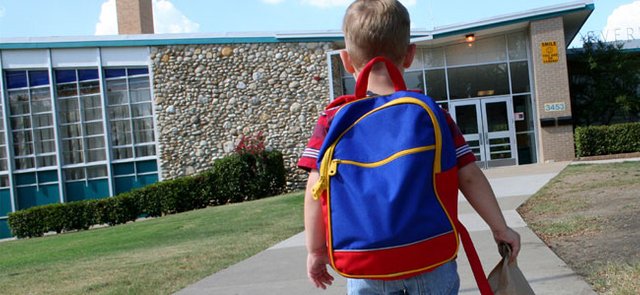
Source
When we send our kids off to school for the first time we worry about when you send your children off to school.lots of different things. Will the make friends, will they have a nice teacher, will they fit in and will they be successful? We all want the best for our children and we worry about the possibility that things might not turn out the way we expect. We always want to make sure that our kids are doing their best and above all that they are treated well and are happy. Those moments when we see our children come home from school with a frown can be heart-wrenching and even make us want to spring to their defence. One of the biggest worries for us is the fear that someday our child might be bullied. As teachers, we need to make it a priority to teach our students empathy from day one and build a culture in our room where all students feel safe.

Pixabay
Kids can be downright cruel sometimes and at a school, you don’t have to look very far to see examples of this. It is imperative that teachers take on the task of teaching kids how to respect each other and accept each other for their differences. Kids need to learn that what makes us all different is what makes us all great. I addressed this in an earlier post about acceptance. This is not just about acceptance of people. It is about truly taking a moment and putting yourself in someone else's shoes and understanding how that person feels. Understanding the things that they have been through and are going through right now. Understanding their perspective and respecting them because of that understanding.
Empathy:
Empathy is the experience of understanding another person's thoughts, feelings, and condition from their point of view, rather than from your own. You try to imagine yourself in their place in order to understand what they are feeling or experiencing.
Source
It is one thing for kids to hear and show sympathy but the goal is for them to understand others feelings. This is a very difficult task for young kids as they are very egocentric by nature. Developing the skills to truly empathize with others is something that takes time and needs to be taught. Not only does it need to be taught, it needs to be modelled. It is one thing to be taught a character life skill but when you see it regularly in action and feel the effects of it personally then the behaviours are more likely to be accepted and mimicked. When seeking to learn more about empathy it quickly becomes apparent that you can’t have empathy without incorporating many other character traits. To show empathy requires the ability to be fair and accepting towards others. As I have said in the past, character education is about all these traits working together rather than individually.
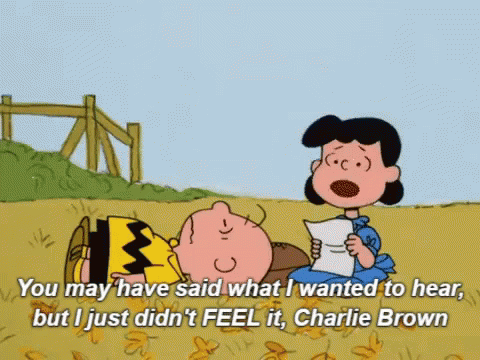
Source
Role-playing has always played a big part in my classroom. Creating scenarios and situations for the students to discuss and debate and then having them take on a role in that scenario has the potential to be more impactful than just reading and discussing the topic. It is like trying to learn a concept in any subject. Reading about it helps, reading about it and talking about it is better but then to add the element of writing about it or doing the concept hands on you are able to engrain deeper understanding and acceptance of the concept. Why should learning character traits be any different?
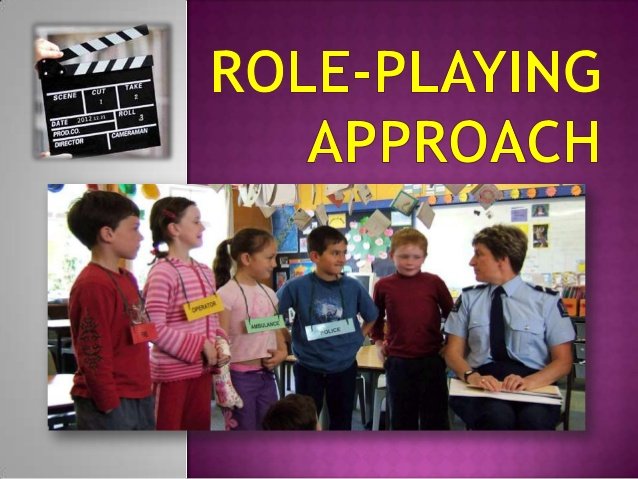
Source
Creating role-play situations can be done in different ways. A typical method is to present the situation to the students for their evaluation and have them work through them. Something I have found successful in the past is to have the students brainstorm and come up with their own real life situations. These can then be used as the scenarios that the class worked through. This enhances the activity a little as now they are dealing with situations that are more tangible and they can reflect on what happened then and how to better deal with that in the future.
As always, I like to emphasize character education by incorporating it into the literature used in my class. This is a great way to reinforce ideas and concepts discussed during your roleplaying lessons or vice versa. There are lots of different books and stories out there that can help foster a stronger understanding of empathy with your students. There are a few that I have used with both my students and my own kids that I will share with you.

Source
A novel that I have shared with my students and that is adored by my own children is “Wonder”. This is a story about a young boy in grade 5 who was born with a facial deformity. As you can imagine, this young man has had to deal with many challenges when it comes to being accepted by his peers. The story takes us on his journey to fit in and find himself as he starts at a new school. Kindness, acceptance and empathy can be found throughout this story in both positive and negative ways. It provides wonderful (pardon the pun) opportunities to discuss character with your kids. This novel is geared towards grades 4-6 students but can be enjoyed by people of all ages. I know many an adult who has enjoyed the book and it can be read aloud to younger kids. Actually, for those who work with younger kids, you might be excited to learn that the author has written the novel in picture book form for younger kids. It is called “we are all Wonders”. Another novel I love to use with my older students is “The Outsider’s”, but that is a post all of its own.
Another story I use with my class is actually used as part of teaching an important reading strategy in my class. One of the toughest skills for some of our readers to learn is how to infer. Inferring is taking the information presented to us along with our own prior knowledge to figure out what the message is or why something might be happening among other things. Making inferences while reading helps us to read between the lines and gain a stronger understanding of what we are reading. Making connections between what we read and our own experiences helps with inferring.
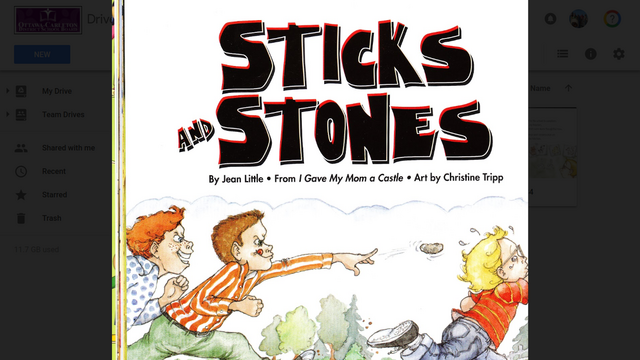
I present my students with a short story titled “Sticks and Stones”. This is a story about a little boy who is picked on by some of the boys in his class. They make fun of him for having a hearing aid and call him names. His father, who has lived through very similar experiences, stands up for his son by speaking with the school and the parents of the other kids. The father truly understands what the boy is going through. He is able to put himself in Mortimer’s shoes and empathize with how he is feeling. In the end, the boy is glad to have his dad’s support and a big friend in his life. Student’s are asked to answer the following question:
“Why is it so important for Mortimer to have a big friend?”
This story always turns into a great discussion about acceptance and kindness and empathizing with others. Students are able to share their own stories of when they have been on either side of this equation. It is truly eye-opening for kids when they realize they have been the person who makes fun at times in real life. I think it is important for them to know that we all make those mistakes from time to time and I even share stories of my childhood where I remember not being as empathetic as I could and should have been.
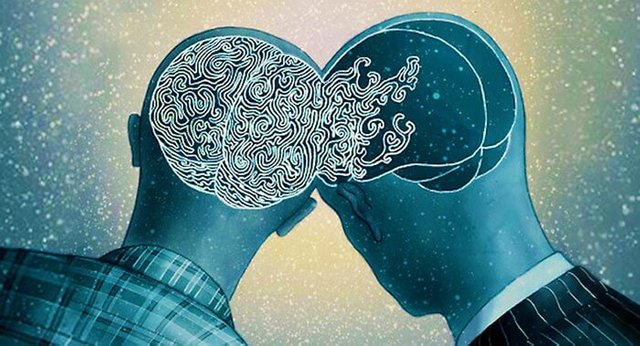
Source
I don’t think that kids set out at a young age to be hurtful to others but rather they get caught up in moments and a lack of understanding about the differences between us. As parents and educators, we have a responsibility to help guide our children and students through the sometimes murky waters of social interaction. Life presents us with learning opportunities all the time. We need to stop and recognize them and share those with our kids so that they may grow and develop into the good citizens we all hope they will be. Use stories and real life scenarios. Anything that can start the conversation is going to have a positive impact.
Previous posts in this series include:
Character Education: Developing Good Citizens - Part 1 (A School Wide Approach)
Character Education: Developing Good Citizens - Part 2 (Acceptance)
Boy, this series is turning into something special. Your writing is great but your obvious empathy with your kids really comes out here. I'm really glad there are teachers like you educating our youth.
Thanks so much, Tom. I appreciate the kind words. I got really involved with character education a long time ago and it has been a passion I have carried with me ever since. What's the point of teaching kids content and ignoring who they are becoming as people?
I'm lately thinking that we need to have a class of Life in schools. for at least first 4 years. To teach the kids about empathy, emotional intelligence, helping, giving back and working in a community, ... Many many things, that we learn after high school, some never learn about those things.
Thanks for these series and for sharing education and knowledge!
Yeah, some of these life lessons are learned much later. Let's give kids the skills they will need early rather than have them learn them on their own later.
Exactly. Life gets to you later and you don't have time to re-educate your self, and it's harder to fix something than to build it from scratch...
I LOVE LOVE LOVE the movie wonder. I think we discussed this previously that it is a MUST for all kids to watch or read. Educating our kids goes beyond pure academics, together with their teachers, we are responsible for their actions, so we need to instil goodness in them. I am so paranoid about bullying, I hope more teachers take your stance!
Yes, you wrote an amazing post on this book/film. It is such a touching story and has a fantastic message. Bullying is such a challenge and teachers must always be aware of the dynamics in their classroom.
Muy bueno tu post en realidad me sorprende ver este punto de vista ya que muchas personas no lo toman en cuenta, pero me parece muy interesante ya que la empatia tiene que comenzar desde la infancia, saludos hermano.
@calitoo
You have been upvoted by the @sndbox-alpha! Our curation team is currently formed by @jeffbernst, @bitrocker2020, @jrswab & @teachblogger . We are seeking posts of the highest quality and we deem your endeavour as one of them. If you want to get to know more, feel free to check our blog.
Thanks so much for the support
The fact that our children learn the meaning of empathy from a young age is very important, since it helps them to be formed as good men and women, sometimes children fall into situations where they can affect others but regularly not because they are evil but because of lack of knowledge and acceptance of the differences that may exist between them and empathy plays an important role in that. I love your techniques to teach children and the biography you use, greetings @broncofan99
So well said!! Kids need that guidance in order to navigate these situations in a responsible way.
Dear friend @broncofan99, you are making a great effort, I think it is remarkable that your proposal in favor of education, teachers should make an attempt to influence more in the education of young people, not only in terms of knowledge, but also in the formation of his character. Healthy coexistence within each human community begins with respect to those who are closest to us. Thank you for your wisdom, God bless you.
Regards ...